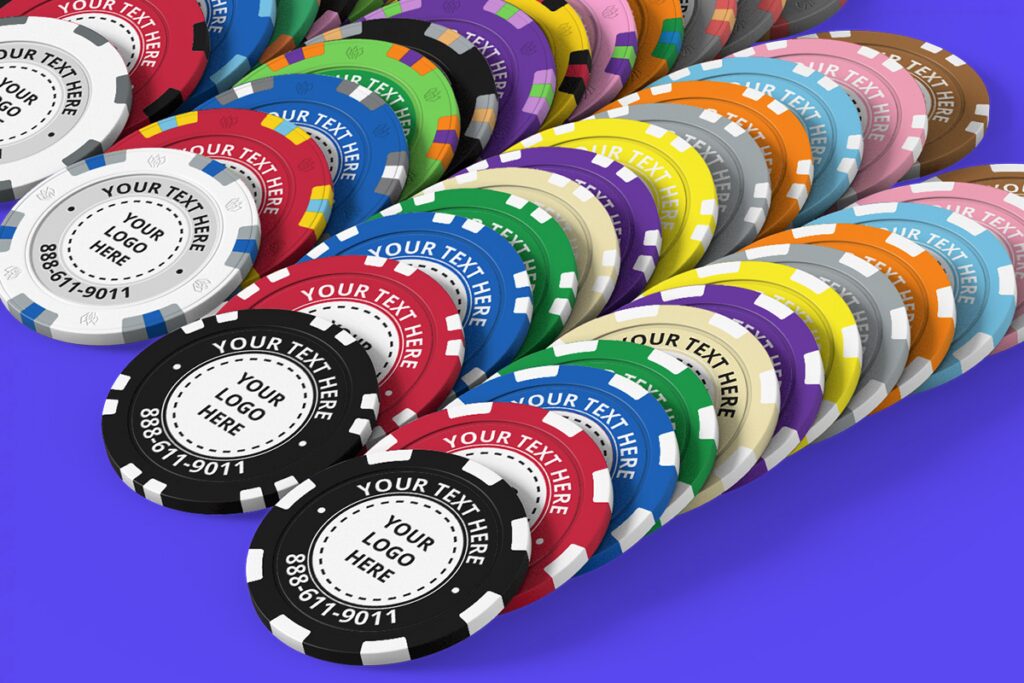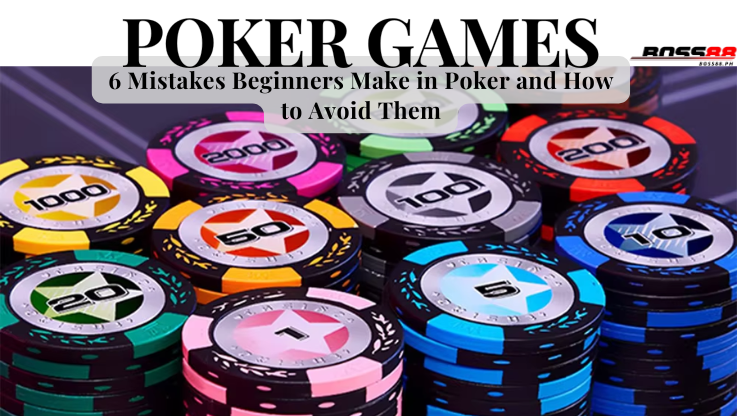Poker is one of the most popular games in online casinos, offering a blend of skill, strategy, and a bit of luck. While the game is thrilling, beginners often make mistakes that can cost them money and confidence. If you’re new to online poker, understanding these common pitfalls and how to avoid them is essential. This guide outlines six key mistakes beginners make and provides practical tips to improve your game.

Playing Too Many Hands
Why It’s a Mistake:
One of the biggest blunders beginners make is playing almost every hand they’re dealt. Online poker’s fast pace can tempt new players to stay involved in the action, but this approach often leads to unnecessary losses.
How to Avoid It:
Be selective about the hands you play. Learn hand rankings and focus on starting hands with high potential, like pocket pairs or suited connectors. Practice discipline and fold weak hands to save chips for better opportunities.
Ignoring Position Importance
Why It’s a Mistake:
Your position at the table significantly impacts your strategy in online poker. Beginners often underestimate how much easier it is to make decisions when you’re one of the last to act in a hand.
How to Avoid It:
Understand the importance of position. Play more hands in late positions and tighten your range in early positions. Being in a later position lets you gather valuable information about your opponents’ moves before making decisions.
Overlooking Betting Patterns
Why It’s a Mistake:
Many beginners focus solely on their cards and ignore how opponents are betting. This results in missed opportunities to read opponents’ strategies and tendencies.
How to Avoid It:
Pay attention to betting patterns and what they might reveal about your opponents’ hands. For example:
- Consistent bets: Indicates strength.
- Small bets: Might signal a weak hand or a bluff.
- Sudden large bets: Could suggest confidence or desperation.
Use these observations to adjust your strategy accordingly.

Bluffing Too Often or Too Rarely
Why It’s a Mistake:
Bluffing is an exciting aspect of poker, but many beginners either bluff too frequently or avoid it altogether. Excessive bluffing can make you predictable, while not bluffing at all means missing out on opportunities to win pots without a strong hand.
How to Avoid It:
Bluff strategically by considering the context:
- Bluff only when your story makes sense.
- Target players who are likely to fold weaker hands.
- Avoid bluffing against “calling stations” who rarely fold.
Mastering bluffing requires practice and careful observation of your opponents’ tendencies.
Mismanaging Bankroll
Why It’s a Mistake:
Bankroll management is a critical skill for online poker players, yet beginners often wager more than they can afford to lose. This leads to financial stress and a higher risk of losing everything in a short time.
How to Avoid It:
Adopt proper bankroll management strategies:
- Set a budget for your poker sessions and stick to it.
- Never wager money you can’t afford to lose.
- Play at stakes that are appropriate for your bankroll.
For example, if you have $200, consider playing at tables where the buy-in is $10 or less to minimize risk.
Failing to Adapt to Online Gameplay
Why It’s a Mistake:
Online poker differs from live poker in several ways. Beginners often fail to adjust, making them easy targets for experienced players. For instance, the faster pace of online poker can lead to rushed decisions, while multitabling can be overwhelming.
How to Avoid It:
Familiarize yourself with the nuances of online poker:
- Start with one table to focus on improving your skills.
- Use features like hand histories and HUDs (heads-up displays) to analyze your gameplay.
- Take advantage of practice modes or free games offered by online casinos.
Additionally, learn to manage the distractions of playing from home by setting up a dedicated, distraction-free environment.

Final Thoughts
Online poker is an exciting game that rewards strategy, discipline, and adaptability. By avoiding these six common mistakes, you’ll enhance your chances of success while enjoying the game responsibly. Start with small stakes, focus on learning the basics, and gradually build your skills over time.
Remember, online poker is not just about winning pots but also about enjoying the process and improving your game with each session. Stay disciplined, keep learning, and most importantly, have fun!







































